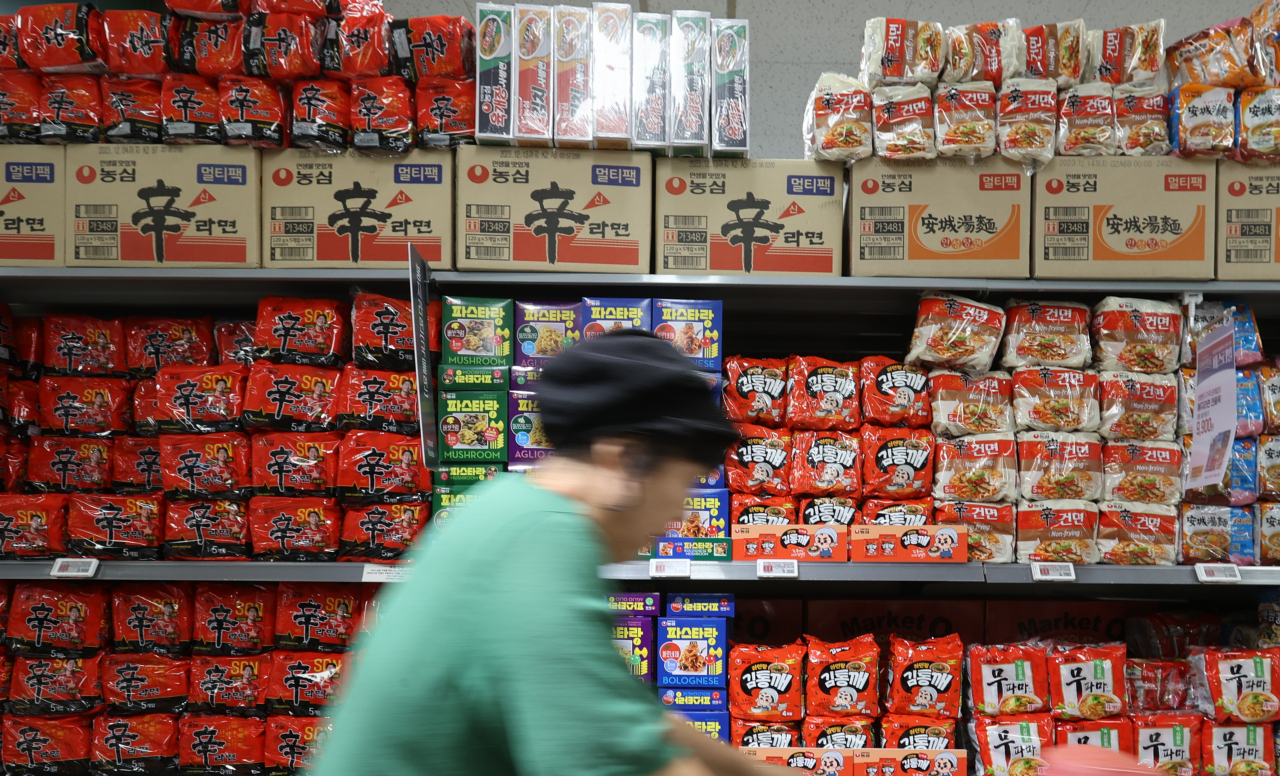S. Korea's consumer prices up 2.7% in June, slow for 5th month
By YonhapPublished : July 4, 2023 - 09:13

South Korea's consumer price growth slowed for the fifth straight month in June, falling below 3 percent for the first time in 21 months, data showed Tuesday.
Consumer prices, a key gauge of inflation, rose 2.7 percent last month from a year earlier, compared with a 3.3 percent increase tallied in May, according to the report from Statistics Korea.
It also marked the first time for the on-year growth in consumer prices to fall below 3 percent since September 2021, the data showed.
The prices of utility services continued to grow sharply, advancing 25.9 percent over the period, as the state-run Korea Electric Power Corp. recently raised its bills amid fluctuations in global energy prices. South Korea depends heavily on imports for its energy needs.
The prices of agricultural, fisheries and livestock products edged up 0.2 percent, following higher costs of apples and chicken, which rose 11.1 percent and 13.7 percent, respectively.
South Korea's finance ministry, meanwhile, said last week the country will remove tariffs on 30,000 tons of imported chicken until the end of this year in line with efforts to curb high-flying prices.
Prices of pork and beef, on the other hand, lost ground on-year in June, decreasing 7.2 percent and 5.1 percent, respectively.
Industrial product prices increased 0.2 percent on-year, led by higher costs of bread and children's clothes.
Those of gasoline and diesel, on the other hand, fell 23.8 percent and 32.5 percent, respectively, over the period, limiting the overall growth.
The agency said the price of fuel products decreased 25.4 percent on-year in June, marking the sharpest drop since it started compiling the data in January 1985.
Prices of services gained 3.3 percent due to higher insurance and housing management costs. International flight tickets, on the other hand, shed 11.3 percent.
"The overall growth in consumer prices fell to the 2 percent level on the back of falling fuel costs and the slowing growth rate of the service sector," an agency official said.
Core inflation, which excludes volatile food and energy prices, rose 3.5 percent on-year in June, down from a 3.9 percent jump a month earlier.
Prices of daily necessities -- 144 items closely related to people's everyday lives, such as food, clothing and housing -- climbed 2.3 percent on-year in June, compared with a 3.2 percent rise in May.
Inflation stayed above 2 percent -- the central bank's inflation target over the medium term -- for the 27th straight month in June.
The central bank held the benchmark interest rate steady for the third straight time in May at 3.5 percent due to easing inflationary pressure amid rising concerns over an economic slowdown. Previously, the bank delivered seven consecutive hikes in borrowing costs from April 2022 to January 2023.
"With the consideration of the base effect, prices are expected to experience a notable stabilization until July. However, the pace of decrease may decelerate during the second half," the official added.
Fluctuations in global raw materials and foreign exchange rates could further constrain the deceleration of inflation as well, she said.
In a separate report, the Ministry of Economy and Finance said that although consumer prices are anticipated to remain stable in the future, they could be influenced by weather conditions, potentially impacting the prices of agricultural goods.
"We are committed to implementing measures to maintain price stability and will closely monitor the supply and prices of goods as well as weather conditions, and respond promptly when necessary," it added.
The ministry noted that only three countries, including South Korea, posted a 2 percent level of inflation among the Group of 20 nations. (Yonhap)



















![[Today’s K-pop] Treasure to publish magazine for debut anniversary](http://res.heraldm.com/phpwas/restmb_idxmake.php?idx=642&simg=/content/image/2024/07/26/20240726050551_0.jpg&u=)